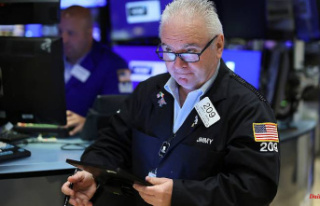The Federal Statistical Office confirms that inflation in Germany was 7.9 percent in August. The increase in electricity prices is still limited, but heating oil and natural gas are becoming significantly more expensive. When it comes to food, cooking oils and dairy products in particular are increasing.
Inflation in Germany rose again before the end of the tank discount and 9-euro ticket. Goods and services cost an average of 7.9 percent more in August than a year earlier, the Federal Statistical Office confirmed an earlier estimate. In July the inflation rate was 7.5 percent and in June it was 7.6 percent.
"The main reasons for the high inflation are still price increases for energy products and food," said the President of the Federal Statistical Office, Georg Thiel. The government relief measures still had a dampening effect, although they only applied from June to August. With the expiry of the tank discount, fuel prices have risen again: recently, petrol and diesel were again more expensive at the petrol stations than in all of the direct EU neighboring countries.
Energy cost 35.6 percent more than in August 2021. Household energy rose particularly sharply at 46.4 percent. The prices for light heating oil have more than doubled within a year by 111.5 percent. The price increase for natural gas was 83.8 percent. Electricity cost 16.6 percent more. 16.5 percent more was required for fuels such as petrol.
Food prices also rose at an above-average rate of 16.6 percent and have risen for the sixth month in a row. Edible fats and oils (44.5 percent) as well as dairy products and eggs (26.8 percent) became significantly more expensive. Consumer prices also increased noticeably for meat and meat products (18.6 percent) and for bread and cereal products (17.1 percent).
Especially at the beginning of 2023, energy suppliers are likely to noticeably adjust their electricity and gas prices to the high procurement costs, which have risen significantly after the Russian invasion of Ukraine. According to the IFO Institute, this will drive up the inflation rate to around eleven percent at the beginning of next year. For 2023 as a whole, the Munich researchers expect an average inflation rate of 9.3 percent, after 8.1 percent in the current year. Most recently, almost every second company surveyed by the IFO Institute stated that they wanted to raise sales prices in the coming months.












